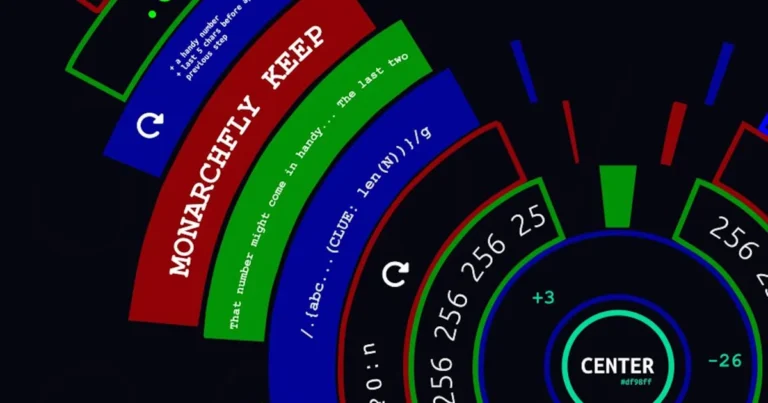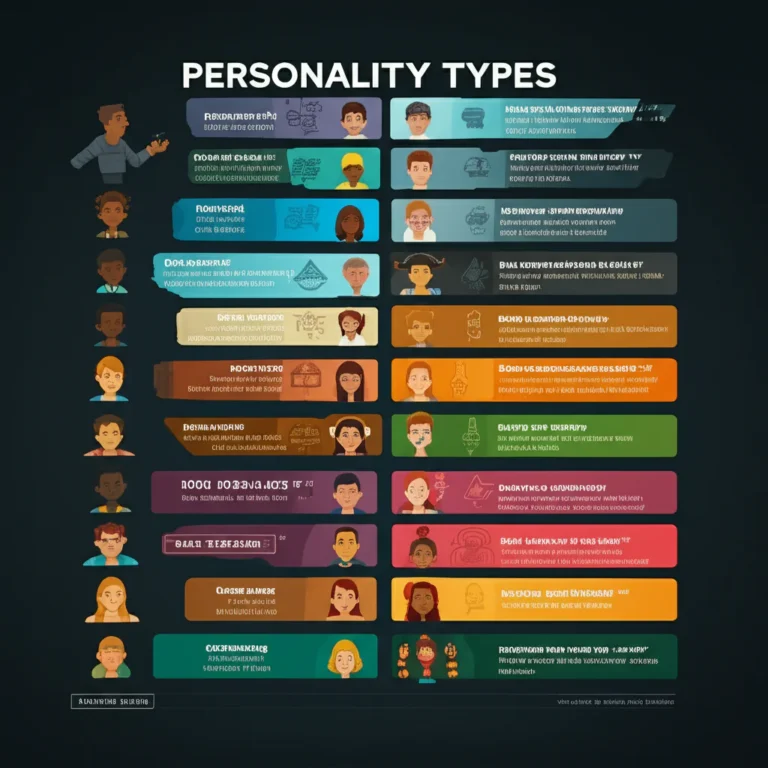Support our educational content for free when you buy through links on our site. Learn more
What Are the 4 Types of Personality? Discover Yours in 2025! 🔍
Have you ever wondered why some people light up a room with their energy while others quietly analyze every detail before speaking? Or why certain coworkers seem born to lead, while others prefer to keep the peace behind the scenes? The secret often lies in understanding the four fundamental personality types that shape how we think, feel, and interact. In this article, we unravel the classic temperaments — Sanguine, Choleric, Melancholic, and Phlegmatic — and show you how these timeless categories still hold the key to unlocking better relationships, career success, and personal growth in 2025.
But here’s the twist: these aren’t rigid boxes. They’re dynamic lenses that, when combined with modern tools like DISC and MBTI, offer a roadmap to your unique personality landscape. Stick around as we share real-life stories, bust common myths, and equip you with practical strategies tailored to your type. Ready to discover your personality superpower? Let’s dive in!
Key Takeaways
- The four classic personality types—Sanguine, Choleric, Melancholic, and Phlegmatic—are foundational to understanding human behavior.
- Modern psychology adapts these into models like DISC and complements them with tools like MBTI and the Enneagram for deeper insights.
- Knowing your personality type boosts emotional intelligence, communication skills, and relationship harmony.
- Each type has unique strengths, challenges, and growth paths—embracing these can transform your personal and professional life.
- Personality is fluid, not fixed; blending multiple traits is normal and healthy.
Ready to find your type? Explore trusted personality tests like the DISC Personality Test or the popular 16Personalities MBTI Test to start your journey.
👉 Shop Personality Assessment Tools on:
Table of Contents
- ⚡️ Quick Tips and Facts About the Four Personality Types
- 🧠 The Origins and Evolution of Personality Type Theories
- 1. The Four Classic Personality Types Explained: Sanguine, Choleric, Melancholic, Phlegmatic
- 2. Modern Interpretations: The Four Personality Types in Psychology Today
- 3. How to Identify Your Personality Type: Key Traits and Behavioral Patterns
- 4. Compatibility and Interactions: How Different Personality Types Relate
- 5. Personality Types in the Workplace: Maximizing Team Dynamics and Productivity
- 6. The Four Personality Types and Emotional Intelligence: What You Need to Know
- 7. Common Misconceptions and Myths About the Four Personality Types
- 8. Personal Growth Strategies Tailored to Each Personality Type
- 9. The Four Personality Types and Mental Health: Recognizing Risks and Strengths
- 🔍 Deep Dive: Comparing Four Personality Types with the Enneagram and MBTI
- 🔗 Recommended Tools and Quizzes to Discover Your Personality Type
- 🎯 Real-Life Stories: How Understanding Personality Types Changed Lives
- 📝 Conclusion: Embracing Your Unique Personality Type for a Fuller Life
- 🔗 Recommended Links for Further Exploration
- ❓ FAQ: Your Burning Questions About the Four Personality Types Answered
- 📚 Reference Links and Credible Sources
⚡️ Quick Tips and Facts About the Four Personality Types
Welcome to the fascinating world of personality types! If you’ve ever wondered “What are the four types of personality?”, you’re in the right place. At Personality Types™, we’ve distilled decades of research and counseling experience into bite-sized, actionable insights just for you. Let’s kick off with some quick facts to get your curiosity piqued:
- The four classic personality types are Sanguine, Choleric, Melancholic, and Phlegmatic — a framework dating back to Hippocrates but still wildly relevant today.
- Modern psychology often adapts these into models like DISC (Dominance, Influence, Steadiness, Compliance) or blends with tools like MBTI and the Enneagram.
- Each type has distinct strengths, weaknesses, and communication styles that affect relationships, work, and personal growth.
- Understanding your type can boost emotional intelligence, improve teamwork, and help you navigate conflicts like a pro.
- Beware of common myths: personality types are not boxes but flexible guides to self-awareness and empathy.
Ready to dive deeper? We’ll unpack the history, traits, and practical applications of each type — plus how to spot yours and use this knowledge to thrive. Curious how these ancient ideas still shape modern psychology? Keep reading!
For a broader context on personality types, check out our comprehensive Personality Types overview.
🧠 The Origins and Evolution of Personality Type Theories
Before we zoom into the four personality types, let’s take a quick stroll down memory lane. Personality theory is no new kid on the block — it’s been evolving for thousands of years.
The Ancient Roots: Four Humors and Temperaments
The idea of four personality types originates from Hippocrates’ theory of the four humors (blood, yellow bile, black bile, and phlegm). These bodily fluids were thought to influence temperament:
| Personality Type | Humor | Key Traits |
|---|---|---|
| Sanguine | Blood | Sociable, lively, optimistic |
| Choleric | Yellow bile | Ambitious, leader-like, fiery |
| Melancholic | Black bile | Thoughtful, reserved, analytical |
| Phlegmatic | Phlegm | Calm, reliable, peaceful |
This ancient framework laid the foundation for many modern personality theories.
Modern Psychology and Behavioral Science
Fast forward to the 20th century, and we see the rise of psychometric assessments like the DISC model, developed from William Moulton Marston’s 1928 research on emotions and behavior. DISC categorizes personalities into Dominance, Influence, Steadiness, and Compliance, echoing the classic four but with a workplace twist.
Meanwhile, frameworks like the MBTI and Enneagram have expanded the landscape, offering more nuanced personality insights. Still, the four-type model remains a go-to for quick, practical understanding.
Why It Matters Today
Understanding these types helps us decode human behavior, improve communication, and foster empathy — whether in relationships, leadership, or personal growth. It’s like having a map to navigate the wonderfully complex terrain of human nature.
For more on personality history and evolution, explore our Personality Traits category.
1. The Four Classic Personality Types Explained: Sanguine, Choleric, Melancholic, Phlegmatic
Let’s get to the heart of the matter — the four classic personality types. Each type has unique characteristics that influence how people think, feel, and behave.
| Personality Type | Key Traits | Strengths | Challenges | Famous Examples |
|---|---|---|---|---|
| Sanguine | Outgoing, enthusiastic, social | Energetic, optimistic, fun-loving | Impulsive, distractible, disorganized | Robin Williams, Oprah Winfrey |
| Choleric | Goal-oriented, assertive, leader | Decisive, confident, ambitious | Aggressive, impatient, domineering | Steve Jobs, Margaret Thatcher |
| Melancholic | Analytical, detail-oriented, introverted | Thoughtful, organized, loyal | Perfectionist, moody, overly critical | Albert Einstein, J.K. Rowling |
| Phlegmatic | Calm, reliable, peaceful | Patient, diplomatic, consistent | Indecisive, resistant to change | Bill Gates, Audrey Hepburn |
What Makes Each Type Tick?
- Sanguines thrive on social interaction and spontaneity. They’re the life of the party but can struggle with follow-through.
- Cholerics are natural leaders who love challenges and results. They can bulldoze over others if unchecked.
- Melancholics are deep thinkers who value order and quality but may get stuck in negative thought loops.
- Phlegmatics are the peacemakers, steady and dependable, yet sometimes too passive or avoidant of conflict.
Why This Matters
Knowing these traits helps you recognize your own tendencies and better understand others — a game-changer for relationships and teamwork.
Want to explore how these classic types map onto modern tools? Check out our Myers-Briggs Type Indicator insights.
2. Modern Interpretations: The Four Personality Types in Psychology Today
While the classic four types are timeless, psychology has refined and rebranded them for contemporary use. The most popular modern model is the DISC personality assessment, widely used in workplaces.
| DISC Type | Corresponding Classic Type | Core Motivation | Communication Style | Ideal Work Environment |
|---|---|---|---|---|
| Dominance (D) | Choleric | Control, results | Direct, assertive | Fast-paced, goal-driven |
| Influence (I) | Sanguine | Social recognition | Enthusiastic, persuasive | Collaborative, dynamic |
| Steadiness (S) | Phlegmatic | Stability, harmony | Calm, patient | Supportive, predictable |
| Compliance (C) | Melancholic | Accuracy, quality | Formal, detail-oriented | Structured, rule-based |
Why DISC Rocks for Today’s World
- It’s quick to administer (about 8 minutes) and easy to understand.
- Provides actionable insights for team building, leadership, and conflict resolution.
- Backed by ongoing research, including partnerships with Cambridge University’s Judge Business School (source).
Real-World Application
Companies like Microsoft and Google use DISC and related assessments to optimize team dynamics and employee engagement. Imagine knowing who thrives under pressure and who needs a steady pace — that’s workplace magic!
Curious about how DISC compares with other models? Our Personality in Leadership section dives deeper.
3. How to Identify Your Personality Type: Key Traits and Behavioral Patterns
So, how do you figure out which of the four personality types you are? Here’s a step-by-step guide from our team of experts:
Step 1: Reflect on Your Core Motivations
Ask yourself:
- Do I seek social connection and fun? (Sanguine)
- Am I driven by results and control? (Choleric)
- Do I value accuracy and order? (Melancholic)
- Do I prefer peace and stability? (Phlegmatic)
Step 2: Observe Your Communication Style
- Are you direct and assertive?
- Warm and enthusiastic?
- Calm and patient?
- Detail-focused and formal?
Step 3: Notice Your Reaction to Stress
- Do you become impatient or aggressive? (Choleric)
- Overly emotional or moody? (Melancholic)
- Withdrawn or avoidant? (Phlegmatic)
- Distracted or restless? (Sanguine)
Step 4: Take a Validated Assessment
We recommend the Thomas Behavioral Assessment or the DISC Personality Test for accurate results (Thomas Assessment info).
Step 5: Compare and Confirm
Use our detailed personality type comparison table to see which description fits best.
| Trait/Behavior | Sanguine | Choleric | Melancholic | Phlegmatic |
|---|---|---|---|---|
| Sociability | ✅ | ❌ | ❌ | ❌ |
| Leadership | ❌ | ✅ | ❌ | ❌ |
| Detail-oriented | ❌ | ❌ | ✅ | ✅ |
| Calm under pressure | ❌ | ❌ | ❌ | ✅ |
4. Compatibility and Interactions: How Different Personality Types Relate
Ever wondered why you click instantly with some people but clash with others? It often boils down to personality types.
The Compatibility Matrix
| Your Type \ Other Type | Sanguine | Choleric | Melancholic | Phlegmatic |
|---|---|---|---|---|
| Sanguine | High energy, fun | Challenging, sparks | Supportive, warm | Easygoing, balanced |
| Choleric | Motivated, driven | Power struggle | Complementary | Frustration risk |
| Melancholic | Appreciative, patient | Respectful, cautious | Deep connection | Harmonious, steady |
| Phlegmatic | Relaxed, agreeable | Sometimes passive | Supportive, loyal | Peaceful, steady |
Tips for Harmonious Relationships
- Sanguines should give Cholerics space to lead but avoid being too flighty.
- Cholerics benefit from the patience of Phlegmatics but must watch for impatience.
- Melancholics thrive with Phlegmatics who provide stability and calm.
- Phlegmatics can learn assertiveness from Cholerics.
Understanding these dynamics can save friendships, improve teamwork, and even boost romantic relationships. For more on this, visit our Personality and Relationships section.
5. Personality Types in the Workplace: Maximizing Team Dynamics and Productivity
Workplaces are personality melting pots. Knowing the four personality types can transform how teams function.
How Each Type Contributes
| Personality Type | Workplace Strengths | Potential Challenges | Management Tips |
|---|---|---|---|
| Sanguine | Creativity, enthusiasm | Distraction, inconsistency | Provide variety, encourage follow-through |
| Choleric | Leadership, decisiveness | Impatience, conflict | Set clear goals, allow autonomy |
| Melancholic | Precision, planning | Perfectionism, overthinking | Offer structure, avoid micromanaging |
| Phlegmatic | Reliability, teamwork | Resistance to change, passivity | Provide reassurance, encourage voice |
Case Study: Google’s Use of Personality Insights
Google’s Project Aristotle revealed that psychological safety and understanding personality differences are key to high-performing teams. Managers trained in DISC and MBTI report better conflict resolution and innovation.
Boost Your Career
Knowing your type helps you pick roles that fit your style. For example:
- Cholerics excel in leadership roles.
- Sanguines shine in sales or marketing.
- Melancholics thrive in research or quality control.
- Phlegmatics are great in support or counseling roles.
Explore our Career Choices and Personality for tailored advice.
6. The Four Personality Types and Emotional Intelligence: What You Need to Know
Emotional intelligence (EQ) is the secret sauce for personal and professional success. How do the four personality types relate to EQ?
EQ Strengths and Blind Spots by Type
| Personality Type | EQ Strengths | EQ Challenges |
|---|---|---|
| Sanguine | Empathy, enthusiasm | Impulsivity, shallow listening |
| Choleric | Confidence, decisiveness | Emotional regulation, impatience |
| Melancholic | Self-awareness, depth of feeling | Overthinking, moodiness |
| Phlegmatic | Patience, conflict resolution | Avoidance of confrontation |
Tips to Boost EQ for Each Type
- Sanguines: Practice active listening and patience.
- Cholerics: Develop empathy and emotional regulation techniques.
- Melancholics: Challenge negative self-talk and practice mindfulness.
- Phlegmatics: Learn assertiveness and express needs clearly.
Increasing your EQ enhances your ability to connect, lead, and thrive. For more on emotional intelligence and personality, see our Personality Traits resources.
7. Common Misconceptions and Myths About the Four Personality Types
Let’s bust some myths! Personality types are often misunderstood, leading to stereotypes and misuse.
Myth 1: Personality Types Are Fixed Boxes
❌ Reality: Types are fluid and people can exhibit traits from multiple types depending on context and growth.
Myth 2: One Type Is Better Than Others
❌ Reality: Each type has unique strengths and weaknesses. Success comes from leveraging your type, not changing it.
Myth 3: Personality Types Predict Success
❌ Reality: Types influence preferences and behaviors but don’t determine destiny. Skills, environment, and mindset matter too.
Myth 4: You Can Only Have One Type
❌ Reality: Most people are a blend of types, with one dominant and others supporting.
Understanding these truths helps you use personality typing as a tool for growth, not a label to limit yourself or others.
8. Personal Growth Strategies Tailored to Each Personality Type
Ready to level up? Here are expert-backed growth tips for each personality type:
| Personality Type | Growth Focus | Practical Tips |
|---|---|---|
| Sanguine | Discipline and follow-through | Use planners, set small goals, practice mindfulness |
| Choleric | Patience and empathy | Practice active listening, take breaks to reflect |
| Melancholic | Positive thinking and flexibility | Challenge perfectionism, embrace imperfection |
| Phlegmatic | Assertiveness and engagement | Set boundaries, practice saying “no” |
Anecdote: Sarah’s Transformation
Sarah, a classic Choleric, used to bulldoze through team meetings, frustrating colleagues. After learning to pause and listen (a growth tip from our counselors), she became a beloved leader who inspires rather than intimidates.
9. The Four Personality Types and Mental Health: Recognizing Risks and Strengths
Personality influences mental health risks and resilience. Here’s what to watch for:
| Personality Type | Mental Health Risks | Resilience Factors |
|---|---|---|
| Sanguine | Impulsivity, anxiety from overstimulation | Social support, optimism |
| Choleric | Stress, anger management issues | Problem-solving skills, decisiveness |
| Melancholic | Depression, anxiety, rumination | Self-awareness, creativity |
| Phlegmatic | Avoidance, passive-aggressive tendencies | Patience, conflict resolution |
When to Seek Help
If you notice persistent mood swings, withdrawal, or overwhelming stress, consider consulting a mental health professional. Personality-informed therapy can tailor approaches for your type.
For more on mental health and personality, visit our Personality Traits section.
🔍 Deep Dive: Comparing Four Personality Types with the Enneagram and MBTI
Want to geek out? Let’s compare the four classic types with other popular models.
| Model | Number of Types | Focus | How It Relates to Four Types |
|---|---|---|---|
| Four Types | 4 | Temperaments/Behavior | Broad, foundational personality styles |
| Enneagram | 9 | Motivations and fears | Some overlap (e.g., Melancholic ~ Type 4) |
| MBTI | 16 | Cognitive functions | More detailed, combines traits (e.g., Sanguine ~ ENFP) |
Example: Enneagram Type Four vs. Melancholic
The Enneagram Type Four (“Individualist”) shares traits with Melancholics — introspective, sensitive, creative — but adds a layer of emotional motivation and developmental stages (Enneagram Institute).
Why Use Multiple Models?
Each model offers unique insights. Combining them can provide a richer, more flexible understanding of yourself and others.
Explore more in our Myers-Briggs Type Indicator and Personality Traits categories.
🔗 Recommended Tools and Quizzes to Discover Your Personality Type
Ready to find your type? Here are some trusted tools:
- DISC Personality Test — Widely used in workplaces, quick and insightful.
- Thomas Behavioral Assessment — Validated by British Psychological Society, great for career insights.
- 16Personalities (MBTI-based) — Fun, detailed, and popular online test.
- Enneagram Test — For those curious about deeper motivations.
Where to Take These Tests
- DISC: Thomas International DISC Test
- MBTI: 16Personalities
- Enneagram: Enneagram Institute
Pro Tip
Use multiple tests to cross-validate your results — personality is complex, and no single test tells the whole story.
🎯 Real-Life Stories: How Understanding Personality Types Changed Lives
Nothing beats real stories to bring theory to life.
Story 1: Mark and Team Harmony
Mark, a Choleric manager, struggled with high turnover. After taking a DISC assessment, he learned to appreciate his team’s diverse styles, especially the Phlegmatic members who needed more reassurance. Result? Team morale soared, and productivity increased.
Story 2: Lisa’s Personal Breakthrough
Lisa, a Melancholic artist, battled perfectionism and self-doubt. Understanding her type helped her embrace imperfection and channel emotions into creativity, leading to her first gallery show.
Story 3: The Sanguine-Spouse Challenge
John (Sanguine) and Emily (Phlegmatic) often clashed over social plans. Learning about their types helped them communicate better — John learned to appreciate Emily’s need for calm, Emily embraced John’s zest for life.
These stories show how knowing your type can be a game-changer in relationships and self-growth.
Conclusion: Embracing Your Unique Personality Type for a Fuller Life

Wow, what a journey through the fascinating landscape of the four personality types! From ancient humors to modern DISC assessments, we’ve uncovered how these timeless frameworks help us understand ourselves and others better. Whether you identify as a lively Sanguine, a driven Choleric, a thoughtful Melancholic, or a steady Phlegmatic, embracing your personality type is like unlocking a secret superpower.
Here’s the bottom line:
✅ Positives:
- The four personality types provide a simple yet powerful lens to decode behavior, improve communication, and foster empathy.
- They’re practical for personal growth, team building, and even mental health awareness.
- Combined with modern tools like DISC, MBTI, and the Enneagram, they offer deep insights into motivation and interaction styles.
❌ Negatives:
- Beware of oversimplification — personality is complex and fluid, not a rigid box.
- Misusing types as labels can limit growth or create stereotypes.
- Some models may feel incomplete without integrating multiple perspectives.
Our confident recommendation? Use the four personality types as a foundational guide — a starting point for self-discovery and understanding others. Pair them with validated assessments like the Thomas Behavioral Assessment or 16Personalities for a richer picture. And always remember: your personality is a dynamic part of your story, not the whole book.
By now, you should feel equipped to spot your type, appreciate differences, and apply this wisdom to your relationships, career, and personal growth. So go ahead — embrace your unique personality and watch your world transform!
🔗 Recommended Links for Further Exploration
Ready to dive deeper or find tools to discover your personality type? Check these out:
-
DISC Personality Test:
Thomas International DISC Test on Amazon | Thomas Official Website -
MBTI Personality Test:
16Personalities Test -
Enneagram Personality Test:
Enneagram Institute -
Recommended Books:
- Personality Types: Using the Enneagram for Self-Discovery by Don Richard Riso & Russ Hudson — Amazon Link
- The Wisdom of the Enneagram by Don Richard Riso & Russ Hudson — Amazon Link
- Emotional Intelligence by Daniel Goleman — Amazon Link
-
Personality Types Overview:
Personality Types™ Comprehensive Guide
❓ FAQ: Your Burning Questions About the Four Personality Types Answered

What are the main differences between the four personality types?
The four personality types differ primarily in their core motivations, communication styles, and behavioral tendencies:
- Sanguine: Sociable, enthusiastic, spontaneous, thrives on social interaction.
- Choleric: Assertive, goal-driven, decisive, thrives on challenge and control.
- Melancholic: Analytical, detail-oriented, introspective, values order and quality.
- Phlegmatic: Calm, reliable, peace-loving, values stability and harmony.
These differences influence how people react to stress, make decisions, and relate to others.
Read more about “Discover Your True Self: The 4 Personality Types Test Explained (2025) 🔍”
How do the four personality types affect relationships and communication?
Each type has a unique way of expressing themselves and interpreting others:
- Sanguines communicate warmly and energetically but may struggle with follow-through.
- Cholerics are direct and assertive, sometimes perceived as domineering.
- Melancholics prefer thoughtful, precise communication but may be overly critical.
- Phlegmatics are diplomatic and patient but may avoid confrontation.
Understanding these styles helps prevent misunderstandings and fosters empathy.
Read more about “What Are the Strengths & Weaknesses of 40 Personality Types? 🔍 (2025)”
Can someone have traits from multiple personality types, or are they exclusive?
Personality types are not exclusive boxes. Most people exhibit a blend of traits, with one dominant type and others influencing behavior depending on context, mood, and growth. This fluidity allows for flexibility and personal development.
Read more about “Sigma vs Alpha vs Beta: 10 Insights into Male Archetypes 🤔 …”
What are the strengths and weaknesses of each of the four personality types?
| Type | Strengths | Weaknesses |
|---|---|---|
| Sanguine | Energetic, optimistic, social | Impulsive, distractible, inconsistent |
| Choleric | Decisive, confident, ambitious | Impatient, aggressive, controlling |
| Melancholic | Thoughtful, organized, loyal | Perfectionist, moody, overly critical |
| Phlegmatic | Patient, diplomatic, dependable | Indecisive, passive, resistant to change |
Read more about “How Understanding Personality Types Can Improve Relationships 💡 (2025)”
How can understanding the four personality types improve personal and professional development?
Knowing your type helps you:
- Leverage your natural strengths.
- Identify blind spots and growth areas.
- Improve communication and teamwork.
- Manage stress and emotional responses better.
- Choose careers and roles aligned with your style.
This self-awareness fosters emotional intelligence and resilience.
Are the four personality types determined by nature or nurture, and can they change over time?
Personality develops through a complex interplay of genetics (nature) and environment (nurture). While core tendencies are relatively stable, personality can evolve with experience, intentional growth, and changing circumstances. So yes, you can develop traits outside your dominant type!
How do psychologists and personality assessments, such as the Myers-Briggs Type Indicator, categorize the four personality types?
Psychologists often use models like MBTI and Enneagram that expand on the four types by adding dimensions and subtypes. For example:
- MBTI’s 16 types combine four dichotomies (Introversion/Extraversion, Sensing/Intuition, Thinking/Feeling, Judging/Perceiving) but can be loosely mapped to the four classic temperaments.
- The Enneagram’s nine types include motivations and fears, with some types (like Type Four) resembling Melancholic traits.
These assessments provide more nuanced insights but share the same goal: understanding human behavior.
📚 Reference Links and Credible Sources
- Enneagram Institute: Type Four Overview
- Thomas International: DISC Personality Types
- Mercer | Mettl Blog: Understanding Four Personality Types: A, B, C and D
- Cambridge Judge Business School: Thomas Assessment Research
- 16Personalities: MBTI-Based Personality Test
- Personality Types™: Personality Traits Category
- Daniel Goleman: Emotional Intelligence
By weaving together these trusted resources, you can confidently explore the rich world of personality types and apply this wisdom to your life. Happy discovering!




